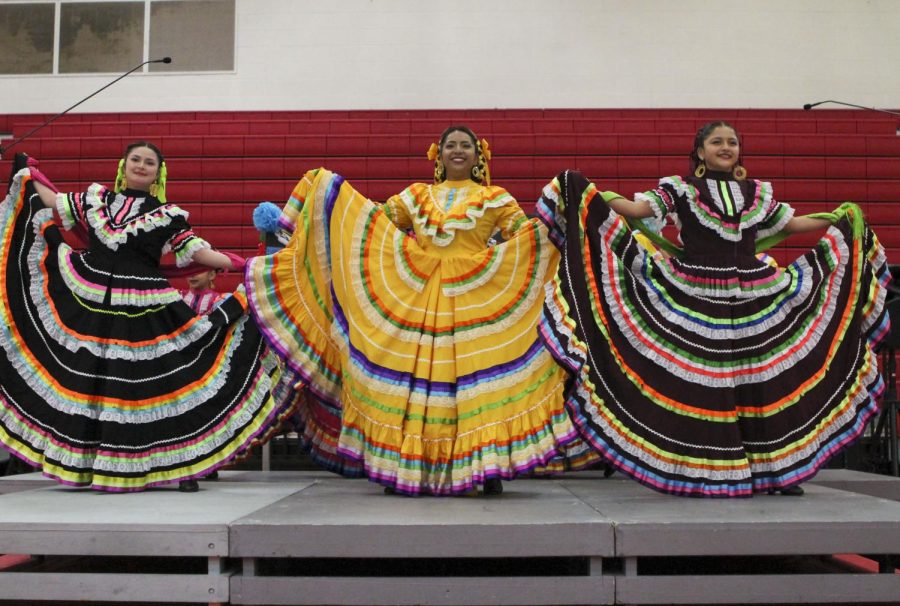Your Best American Girl.
Jags share their experience growing up in America as Hispanics.
October 24, 2022
Surrounded by so many people, the feeling of wanting to be a different ethnicity consumes them one by one. They enter new school years and get the same tease, slander, and embarrassment, but they are expected to just take it. They are taught at young ages that they must endure disrespect because they are who they are, but it’s not easy blocking hurtful memories.
Students and teachers have come together and discovered they’re not the only ones that feel this way. They look around them everyday, even the second they wake up. They look and see different faces and colors but realize seeing other versions of yourself in America is rare.
“I’d be insecure of how my skin color looks and insecure of speaking Spanish because of how much I got bullied because of it,” sophomore Coral Arriaga said. “A lot of people told me to go back to Mexico or said ‘you don’t belong here, look at you.’ It affected me a lot growing up. When I was little, I really hated my skin color and it became a problem.”
Self doubt corrupts the Hispanic community and strikes them in the ripe ages of preadolescence, following them into older ages. Their voices are quickly silenced and interrupted by both adults and kids who aren’t faced with the same difficulties. Through rough childhood memories, Hispanics grow and spot the insecurities they’ve faced as a kid. As they get older, they begin reflecting off their stories and chiming in with their heartfelt pain.
“I’ve lived in America for seven years now,” senior Eduardo Salcedo said. “As a kid, I was really social and not being able to communicate with people really frustrated me. I started watching Youtube videos in English to try to understand and learn more. By the end of my first year in America, I was able to speak English. Even though I was still bullied for my accent, I started to feel like I could finally communicate with people in order to make friends. But, to this day, I still do not feel American.”
Hispanic Americans try their best to assimilate into this country, prioritizing English above other languages. They teach themselves how to live the “American way” and adjust themselves to new norms.
“You’re young and you want to fit in, so you don’t see the issues you created for yourself,” Math teacher Dalia Aguirre said. “Once you grow up, you’re like, ‘did I really have to hide myself that much?’ I always tried to get higher grades and to look better than my classmates because I wanted to prove that I was enough. At some point you feel like you have to hide it so you don’t stand out and people won’t look at you weirdly.”
Students with hispanic backgrounds are not alone with their untold truths. Their struggles range from the school staff and teachers to the quietest of kids on campus. Hispanics advise others who have faced similar challenges to embrace who they are and show pride in their culture. Trying their best, year by year, they work to prove their worth.
“In eighth grade I was shy, so I started talking to people who only spoke English to adjust to the setting,” junior Grecia Vega said. “Growing up, I had been asked multiple times if I was Mexican because of my accent and I would say yes and laugh it off. Over time, I learned that you don’t have to try to be someone else or feel weird because of your accent. Your accent is pretty and that’s what makes you unique.”


AnnaBelle • Nov 3, 2022 at 9:35 pm
Such an important message, well said Aileen!
Mrs. Aguirre • Oct 24, 2022 at 2:51 pm
Thank you for sharing our voices Aileen!